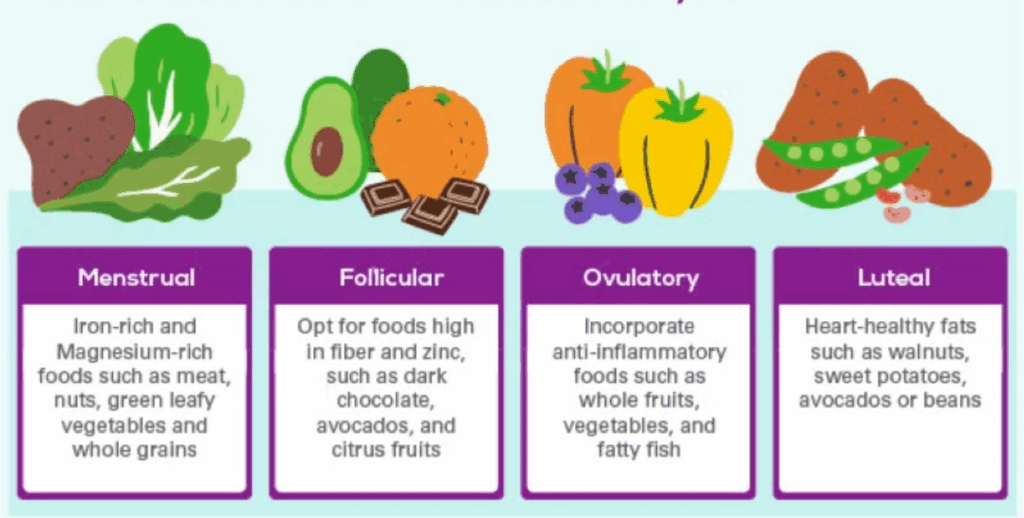Female bodybuilders must track their hormonal fluctuations to optimize results. During the estrogen-dominant follicular phase, you’ll experience better strength, recovery, and insulin sensitivity, which is ideal for high-volume training and carbohydrate intake. The progesterone-heavy luteal phase requires modified expectations, increased protein, and lighter workouts due to reduced recovery capacity. Consider scheduling personal record attempts during estrogen peaks while focusing on technique during progesterone dominance.
Understanding how testosterone, sleep quality, and compound movements affect your hormonal balance reveals your full potential.
Understanding Estrogen’s Dual Role in Muscle Growth and Fat Storage
Though often thought of primarily as a fat-storage hormone, estrogen is actually quite complex in female bodybuilding. This hormone helps you recover from muscle inflammation and supports joint health. These are essential conditions for steady training progress.
Estrogen does alter fat distribution, directing storage toward the hips and thighs rather than the abdominal area. But it also increases insulin sensitivity, which may improve nutrient delivery to muscles after exercise. The secret is balancing your hormones during your training cycles.
Your body composition goals become more achievable when you work with your estrogen levels rather than against them. By timing higher-volume training during estrogen peaks and focusing on recovery when levels drop, you’ll optimize your body’s natural hormonal environment for maximum muscle growth.
Progesterone Fluctuations and Their Impact on Training Recovery
Like estrogen, which supports muscle development mainly, progesterone presents a challenge for female bodybuilders during specific cycle phases. Your elevated levels of progesterone during your luteal phase will likely cause decreased recovery capacity and fatigue. Those hormonal swings can extend muscle soreness by 24-48 hours and temporarily lower your training performance.
Plan your most demanding sessions during the follicular phase when progesterone is lowest. During high-progesterone weeks, emphasize technique work and moderate volume over maximal intensity. Your response to the menstrual cycle is not a limitation but a signal to adjust your approach.
Trace these trends to optimize recovery timing and keep consistent progress despite predictable hormonal changes throughout the month.

Navigating Strength Variations Throughout the Menstrual Cycle
And because hormone levels vary across a menstrual cycle, your strength capacity also varies predictably. Your rising estrogen levels create the perfect conditions for strength training during your follicular phase. Many women set personal bests then. You should generally have more energy and a faster recovery.
Entering the luteal phase, progesterone rises and estrogen falls, which may reduce your strength by 5-10%. Take heart from this natural variation. Change your intensity of training instead.
Organize your hardest workouts during the peak of testosterone and estrogen mid-cycle, and focus on technique refinement or lower-intensity sessions during the luteal phase. All of these hormonal shifts are not limitations. These are opportunities to improve your training approach.

Strategic Nutrition Timing Based on Hormonal Phases
Since your nutritional needs vary with your hormones, eating right during each phase can improve your bodybuilding results. Profit from your increased insulin sensitivity by consuming more carbohydrates during the follicular phase to fuel your workouts and strengthen your anabolic response.
Entering the luteal phase, add protein to combat higher cortisol levels that impair muscle preservation. Good fats can also boost hormone production when your energy metabolism slows down. Try timing carbohydrates around workouts rather than all day.
For those approaching or going through menopause, distribute protein evenly across meals to counter declining hormonal support for muscle synthesis. And consistent meal timing helps your body maintain metabolic efficiency despite hormonal changes.

Testosterone Optimization Techniques for Female Athletes
While testosterone levels are generally much lower in women, it is still necessary for muscle growth, strength gains, and athletic performance. Support testosterone production with compound movements like deadlifts and squats that stimulate endocrine health without interfering with hormonal balance.
Prevent catabolic effects that suppress testosterone production prior to intense training sessions by prioritizing adequate recovery between sessions. Dietary fats, including avocado and olive oil, are necessary for hormone synthesis.
Also, adequate vitamin D supports testosterone production and bone density. Also, limit alcohol and get enough sleep. Both of these will affect how your body makes and uses testosterone.
Frequently Asked Questions
How Do Hormonal Contraceptives Affect Strength Gains and Body Composition?
Hormonal contraceptives can reduce your testosterone levels, potentially slowing strength gains. They’ll also affect your estrogen-progesterone balance, which might change how you store fat and build muscle during training.
Should Women Adjust Supplement Timing Based on Menstrual Phases?
Yes, you should adjust your supplement timing based on menstrual phases. Take magnesium and BCAAs during the luteal phase when recovery needs increase, and maximize protein intake during the follicular phase to support muscle growth.
Can Stress-Induced Hormonal Changes Be Mitigated Through Specific Training Protocols?
Yes, you can mitigate stress hormones through periodized training that includes deload weeks, adequate recovery time, stress-reduction techniques like meditation, and avoiding overtraining during high-cortisol phases of your menstrual cycle.
How Does Thyroid Function Impact Female Bodybuilding Progress?
Your thyroid regulates metabolism, directly affecting fat loss and muscle gain. Ideal thyroid function boosts energy for workouts and recovery, while imbalances can stall progress despite consistent training and proper nutrition.
When Should Women Consider Hormone Testing for Optimal Training Results?
Consider hormone testing if you’re experiencing prolonged fatigue, inconsistent progress, or significant mood/energy fluctuations. It’s also valuable during perimenopause, after pregnancy, or when your training plateaus despite proper nutrition and recovery.







